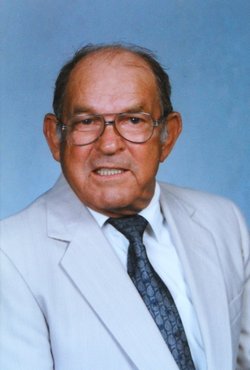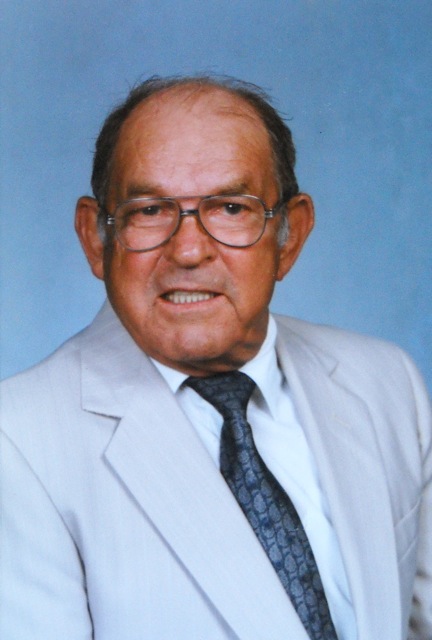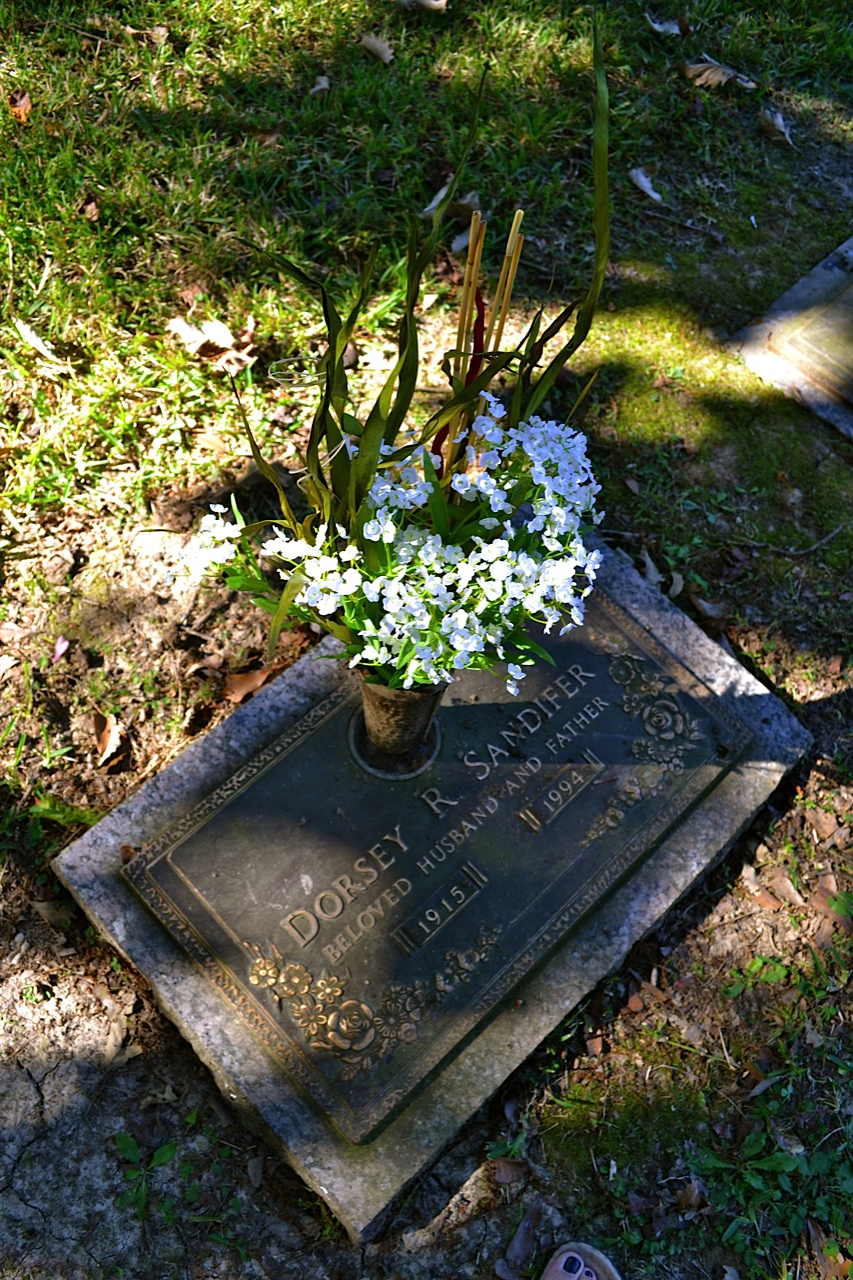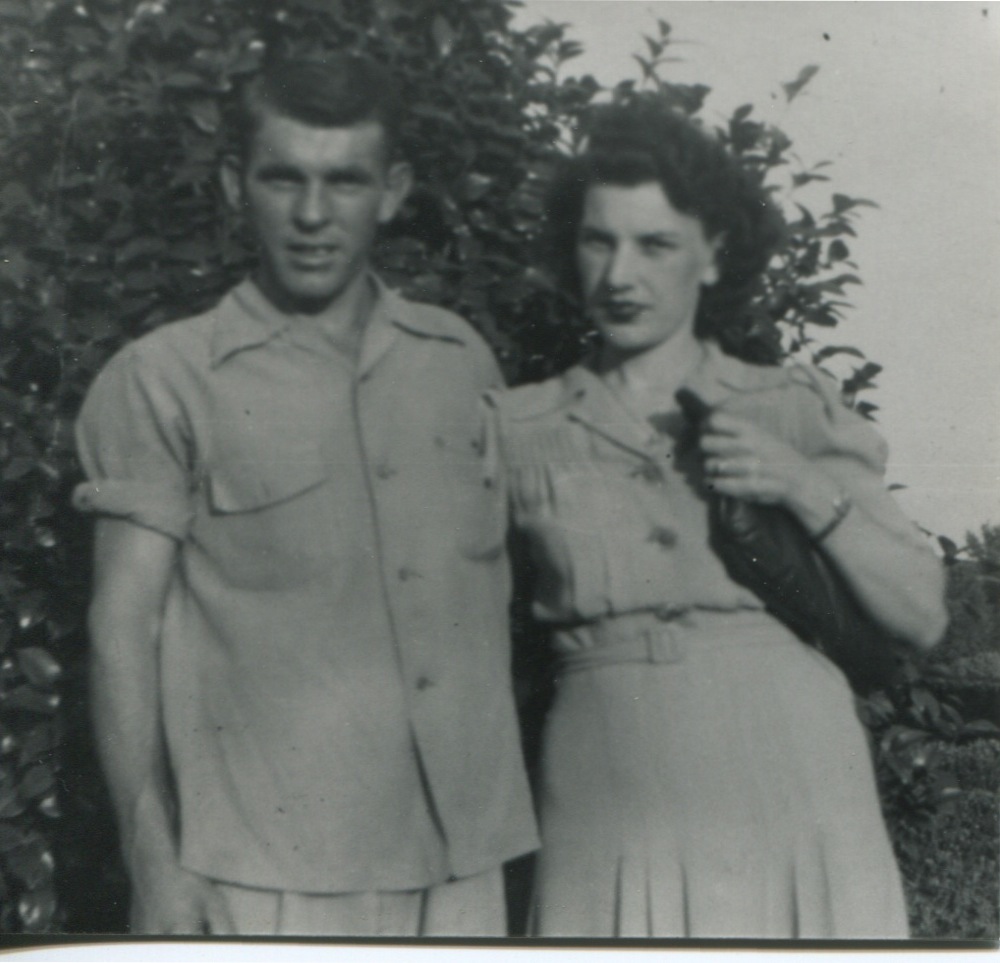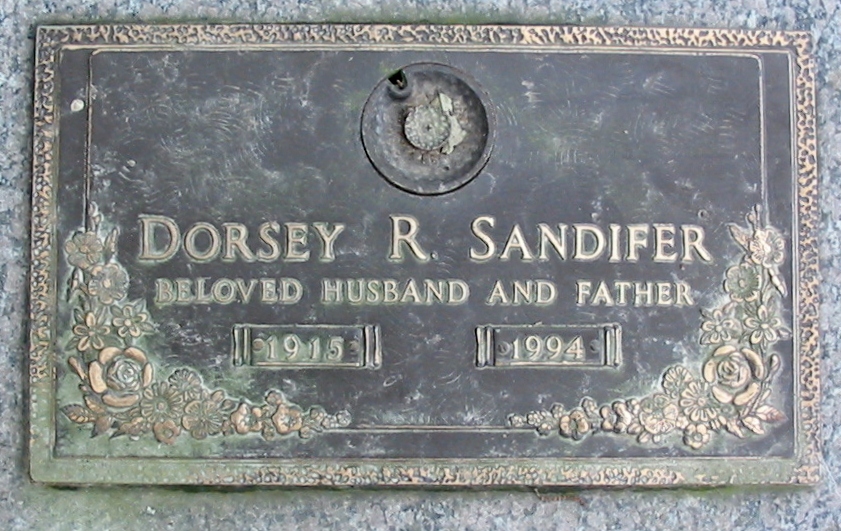I GRATEFULLY ACKNOWLEDGE THE ASSISTANCE OF ESTEEMED FIND A GRAVE MEMBER BOBBY, WHO GRACIOUSLY PROVIDED THE PICTURES OF MY GRANDPARENTS' GRAVES.
++++
Dorsey Sandifer was my maternal grandfather and beloved Papaw. He married Elizabeth Cassidy in Brookhaven, Mississippi, on December 21, 1935. During the war they moved to Baton Rouge, Louisiana, where Papaw worked for and eventually retired from Standard Oil (Esso).
My grandparents had four children: Patricia Ann (my mother), born June 25, 1937 in Brookhaven, Mississippi; Sherrill Edwin, born January 6, 1939; Linda Jean, born August 6, 1940, and Dorsey Jr., born December 11, 1947.
My own husband, Greg, was especially doted upon by Papaw. The first time the two of them met was in Atlanta in June of 1979, a few days before our wedding.
When Greg arrived, Papaw was cooking up a big pot of jambalaya for everybody. Papaw was a cajun chef with few equals; he could've taught Paul Prudhomme a thing or twelve.
I still dream of his repasts of fried brim (that he'd caught on his own bayou trotlines), hot crispy okra, melt-in-your-mouth butterbeans, and scrumptious cakelike cornbread.
(Let's not even talk about his homemade fudge. My sister and I -- as adults -- have been known to fight over a tin of that stuff. Since his passing I've never tasted fudge remotely like it. People don't know what fudge is anymore. Hint: it does not involve chocolate chips, marshmallow creme, or condensed milk.)
An' yeah ma cher, for that jambalaya recipe he'd brought the Andouille sausage with him all the way from Baton Rouge.
Well, when Papaw put it on the table accompanied by a pan of cornbread still in the black iron skillet and said "tuck in" -- or words to that effect -- my Greg took it very personally. He ate three platesful and before the evening was over, Papaw was calling that Ohio boy "son."
On December 4, 2010 -- which would have been Papaw's ninety-fifth birthday -- I sat for hours researching my lineage on Ancestry dot com.
It was most entertaining and several times I laughed out loud. One of the times was when I was looking at crystal-clear pictures of the handwritten census records taken in 1920 and 1930 in Wesson, Copiah County, Mississippi.
Although my grandfather had celebrated his fourth birthday only a month prior to January 7, 1920, the census enumerator for "Wesson City," one Albert B. Weeks, put down little Dorsey's age as four and a half. He is correctly identified as to race and gender across the line of little checkboxes thusly: Dorsey ... Son... M ... W ... 4 1/2 ... S.
His mother, my great-grandmother Eugenia, whose husband had died the previous November, was expecting her last child, baby Myron. She is described as a 41-year old white woman, widow, head of the house.
Living in the home with her were sons Anderson, Jessie, and Dorsey, as well as daughters Buella, Mildred, Elberta, Bessie, Mollie, and Katie.
Ten years later, on April 7, 1930, the census enumerator for "Wesson Town" in Copiah County, Mississippi, was a lady named Mattie Matthews.
Eugenia, by then age 50, still lived in the little house described as being situated "East of the Railroad Tracks" (the wrong side, no doubt), but she'd added two boarders: Hooper Stone, white, age 25, and Hilda Carruthers, white, age 22.
Some of her brood had flown the nest. Remaining at home were sons Jessie, age 22, and Myron, age 9. They were joined by daughters Mollie, 17, Katie, 15 ... and Dorcie, 14.
Yes. Somewhere between 1920 and 1930 my grandfather became a girl and changed his name from Dorsey to Dorcie.
That information provided according to what had to have been an extremely myopic -- or, at the very least, distracted -- census taker.
Papaw would've loved it that the census enumerator wrote him down as a daughter when he was fourteen. In my mind's eye I can see his face alight with laughter and with my heart I can hear that laughter.
Maybe after wiping away tears of mirth, to entertain us he would have snatched his harmonica out of his pocket and played the piece that sounded just like the slowly-building noise of a locomotive progressing purposefully along the rails, crescendoing in its high-pitched whistle as it blew by us where we stood "East of the Railroad Tracks."
Because anywhere my Papaw was, was always the side of the tracks I wanted to be on.
Even if he was really a girl.
I GRATEFULLY ACKNOWLEDGE THE ASSISTANCE OF ESTEEMED FIND A GRAVE MEMBER BOBBY, WHO GRACIOUSLY PROVIDED THE PICTURES OF MY GRANDPARENTS' GRAVES.
++++
Dorsey Sandifer was my maternal grandfather and beloved Papaw. He married Elizabeth Cassidy in Brookhaven, Mississippi, on December 21, 1935. During the war they moved to Baton Rouge, Louisiana, where Papaw worked for and eventually retired from Standard Oil (Esso).
My grandparents had four children: Patricia Ann (my mother), born June 25, 1937 in Brookhaven, Mississippi; Sherrill Edwin, born January 6, 1939; Linda Jean, born August 6, 1940, and Dorsey Jr., born December 11, 1947.
My own husband, Greg, was especially doted upon by Papaw. The first time the two of them met was in Atlanta in June of 1979, a few days before our wedding.
When Greg arrived, Papaw was cooking up a big pot of jambalaya for everybody. Papaw was a cajun chef with few equals; he could've taught Paul Prudhomme a thing or twelve.
I still dream of his repasts of fried brim (that he'd caught on his own bayou trotlines), hot crispy okra, melt-in-your-mouth butterbeans, and scrumptious cakelike cornbread.
(Let's not even talk about his homemade fudge. My sister and I -- as adults -- have been known to fight over a tin of that stuff. Since his passing I've never tasted fudge remotely like it. People don't know what fudge is anymore. Hint: it does not involve chocolate chips, marshmallow creme, or condensed milk.)
An' yeah ma cher, for that jambalaya recipe he'd brought the Andouille sausage with him all the way from Baton Rouge.
Well, when Papaw put it on the table accompanied by a pan of cornbread still in the black iron skillet and said "tuck in" -- or words to that effect -- my Greg took it very personally. He ate three platesful and before the evening was over, Papaw was calling that Ohio boy "son."
On December 4, 2010 -- which would have been Papaw's ninety-fifth birthday -- I sat for hours researching my lineage on Ancestry dot com.
It was most entertaining and several times I laughed out loud. One of the times was when I was looking at crystal-clear pictures of the handwritten census records taken in 1920 and 1930 in Wesson, Copiah County, Mississippi.
Although my grandfather had celebrated his fourth birthday only a month prior to January 7, 1920, the census enumerator for "Wesson City," one Albert B. Weeks, put down little Dorsey's age as four and a half. He is correctly identified as to race and gender across the line of little checkboxes thusly: Dorsey ... Son... M ... W ... 4 1/2 ... S.
His mother, my great-grandmother Eugenia, whose husband had died the previous November, was expecting her last child, baby Myron. She is described as a 41-year old white woman, widow, head of the house.
Living in the home with her were sons Anderson, Jessie, and Dorsey, as well as daughters Buella, Mildred, Elberta, Bessie, Mollie, and Katie.
Ten years later, on April 7, 1930, the census enumerator for "Wesson Town" in Copiah County, Mississippi, was a lady named Mattie Matthews.
Eugenia, by then age 50, still lived in the little house described as being situated "East of the Railroad Tracks" (the wrong side, no doubt), but she'd added two boarders: Hooper Stone, white, age 25, and Hilda Carruthers, white, age 22.
Some of her brood had flown the nest. Remaining at home were sons Jessie, age 22, and Myron, age 9. They were joined by daughters Mollie, 17, Katie, 15 ... and Dorcie, 14.
Yes. Somewhere between 1920 and 1930 my grandfather became a girl and changed his name from Dorsey to Dorcie.
That information provided according to what had to have been an extremely myopic -- or, at the very least, distracted -- census taker.
Papaw would've loved it that the census enumerator wrote him down as a daughter when he was fourteen. In my mind's eye I can see his face alight with laughter and with my heart I can hear that laughter.
Maybe after wiping away tears of mirth, to entertain us he would have snatched his harmonica out of his pocket and played the piece that sounded just like the slowly-building noise of a locomotive progressing purposefully along the rails, crescendoing in its high-pitched whistle as it blew by us where we stood "East of the Railroad Tracks."
Because anywhere my Papaw was, was always the side of the tracks I wanted to be on.
Even if he was really a girl.
Inscription
Dorsey R. Sandifer
Beloved Husband and Father
1915-1994
Family Members
-
![]()
John Anderson Sandifer Sr
1897–1961
-
Marble Brilla Sandifer Martin
1899–1968
-
![]()
Mildred Sandifer Williams
1901–1985
-
![]()
Annie Elberta Sandifer McBride
1902–1994
-
![]()
Bessie Sandifer Woods
1905–1940
-
![]()
Jesse Wilbur Sandifer Jr
1907–1988
-
![]()
Mollie Sandifer Boyte
1912–2009
-
![]()
Katie Lou Sandifer Hinton
1914–1996
-
![]()
Myron Eugenia Sandifer Shoemake
1920–2010
-
Baby Boy of J W and A E Sandifer
unknown–1910
